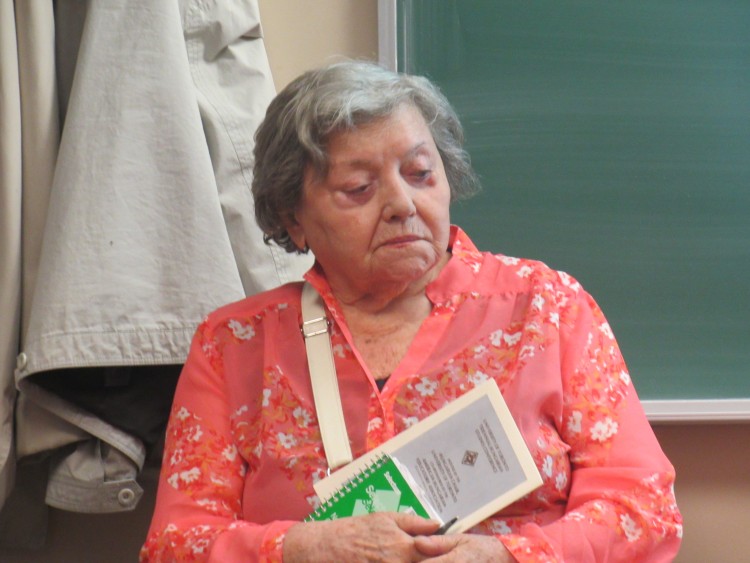Ibi Gábori is an 87 year old Hungarian Canadian survivor of Auschwitz, who shared her experiences of the Holocaust at the 2015 conference of the Hungarian Studies Association of Canada (HSAC), held at the University of Ottawa from May 30th to June 1st, 2015. Ms. Gábori’s talk formed part of a special panel on the Holocaust. She spoke about growing up in poverty in the eastern Hungarian town of Miskolc and how her parents simply could not fathom that Jews in Hungary might be in any real danger in Hungary. She and her parents, like many Hungarian Jews, were very much integrated into the broader Hungarian society and while there were occasional references to them as being “other,” or foreign, Ms. Gábori always saw herself as Hungarian, just like everyone else around her.
Following the German occupation of Hungary on March 19th, 1944, deportation became a reality for Ibi Gábori’s family, but even then many deportees believed what they were being told: they would move to Austria, where in exchange for working the land, they could expect good food and decent living standards.
Ms. Gábori’s father had been taken away as part of a forced labour battalion, while at age 17, she ended up in Auschwitz along with her mother, who looked much older than her real age, and was murdered almost immediately. Ms. Gábori shared with us the horrors and indignities of Auschwitz, as well as her encounter with Josef Mengele. She spoke about how amidst the death, illness and fear, some prisoners in Auschwitz took her under their wings and helped give her the education that she could not receive at home, in her poverty-stricken family.

Ibi Gábori at the Hungarian Studies Association of Canada (HSAC) conference, held at the University of Ottawa on June 1st, 2015. Photo: Christopher Adam
After the liberation of Auschwitz, Ms. Gábori returned to Hungary completely alone: both her parents had been killed. She became a librarian at Budapest’s Szabó Ervin Könyvtár, and fled from Hungary in 1956, following the revolution. She explained how a display of antisemitism during the revolution convinced her to flee.
After settling in Canada, Ms. Gábori worked as a librarian at the Toronto Public Library, where she remained for over three decades. While she is grateful for all that Canada has offered her and while she feels that Canada is her home, she spoke with great emotion at the HSAC conference about her Hungarian identity and her strong ties to Hungary.
What was most striking for me, was to witness Ms. Gábori’s capacity to forgive. Forgiveness, after such persecution, couldn’t have been easy, and perhaps it isn’t always possible, especially when the perpetrators or those who remained silent do not seek to be forgiven. But Ms. Gábori spoke with conviction about the importance of having compassion for all and she seems to harbour no resentment.
I recommend her talk, which I filmed, to all of our readers.



